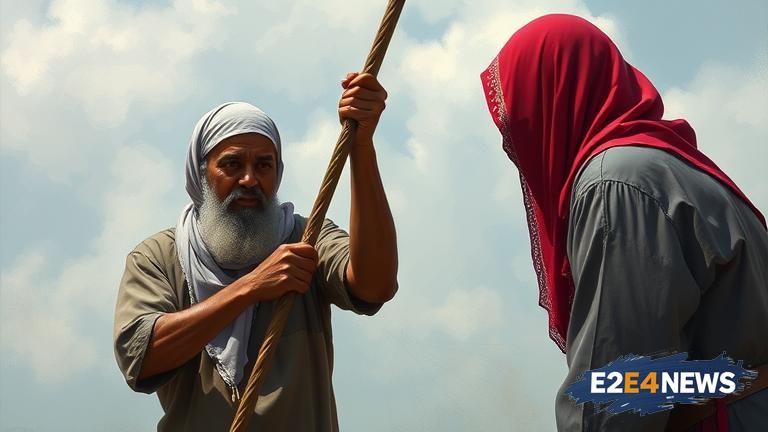The Indonesian province of Aceh has been making headlines recently due to its strict enforcement of Sharia law, which includes the punishment of caning for individuals found guilty of engaging in gay sex. This move has sparked widespread concern and criticism from human rights groups and the LGBTQ+ community worldwide. The law, which was implemented in 2015, states that individuals found guilty of engaging in homosexual activities can face up to 100 lashes as punishment. The caning is typically carried out in public, with the aim of humiliating and punishing the individual. The law has been widely criticized for its brutality and inhumanity, with many arguing that it is a clear violation of human rights. Despite the criticism, the Aceh government has shown no signs of backing down, with officials stating that the law is necessary to maintain moral values and uphold Islamic principles. The implementation of the law has also raised concerns about the safety and well-being of the LGBTQ+ community in Aceh, with many individuals living in fear of persecution and violence. The caning punishment has been carried out on several occasions, with the most recent incident occurring in July 2022, where two men were caned for engaging in gay sex. The incident sparked widespread outrage and condemnation from human rights groups and the international community. The Indonesian government has faced criticism for its handling of the situation, with many arguing that it has failed to protect the rights of its citizens. The Aceh government has also been accused of using the law as a tool to oppress and discriminate against the LGBTQ+ community. The law has also been criticized for its lack of clarity and consistency, with many arguing that it is open to interpretation and abuse. The caning punishment has also been criticized for its brutality, with many arguing that it is a form of torture and a clear violation of human rights. The incident has also sparked a wider debate about the role of Sharia law in Indonesia, with many arguing that it is incompatible with modern values and human rights. The Indonesian government has faced pressure from the international community to repeal the law and protect the rights of its citizens. The incident has also highlighted the need for greater protection and support for the LGBTQ+ community in Indonesia, with many arguing that the government has a responsibility to protect its citizens from persecution and violence. The Aceh government has also been accused of using the law to distract from other issues, such as poverty and corruption. The law has also been criticized for its impact on tourism and the economy, with many arguing that it will deter visitors and investors from the region. The incident has also sparked a wider debate about the role of religion in politics, with many arguing that it is being used to justify discrimination and oppression. The Indonesian government has faced criticism for its failure to address the issue, with many arguing that it has failed to protect the rights of its citizens. The incident has also highlighted the need for greater awareness and education about LGBTQ+ issues, with many arguing that it is necessary to promote tolerance and understanding. The Aceh government has also been accused of using the law to promote a conservative and intolerant agenda, with many arguing that it is incompatible with modern values and human rights. The law has also been criticized for its lack of effectiveness, with many arguing that it will not deter individuals from engaging in gay sex, but rather drive them underground and make them more vulnerable to persecution and violence.
